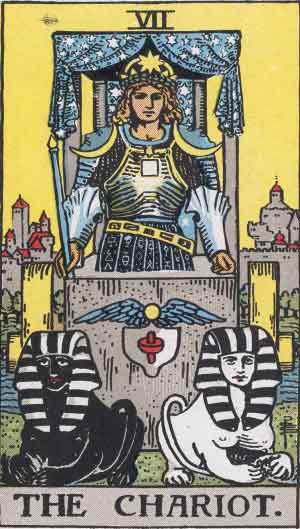Plato used a similar metaphor in which the self (or soul) is a chariot, and
the calm, rational part of the mind holds the reins. Plato’s charioteer had to
control two horses:
“The horse that is on the right, or nobler, side is upright in frame and well
jointed, with a high neck and a regal nose; . . . he is a lover of honor with
modesty and self-control; companion to true glory, he needs no whip,
and is guided by verbal commands alone. The other horse is a crooked
great jumble of limbs . . . companion to wild boasts and indecency, he is shaggy around the ears—deaf as a post—and just barely yields to horsewhip
and goad combined.”

